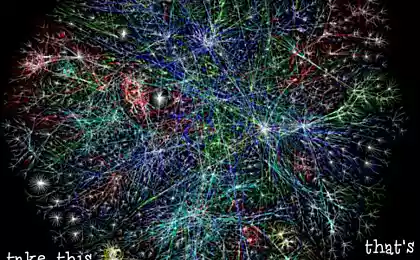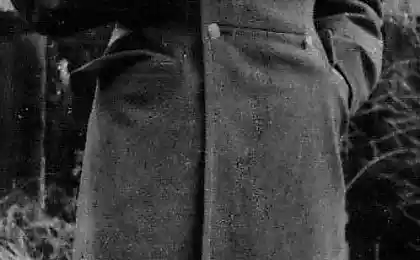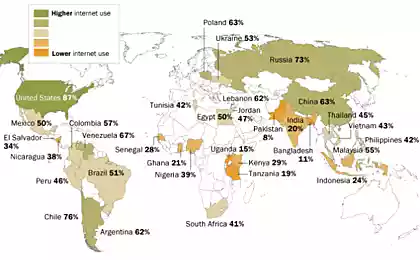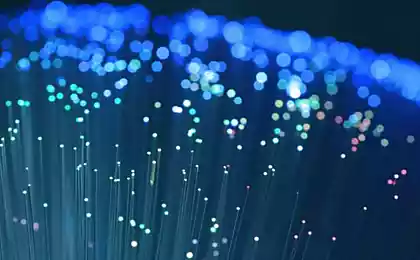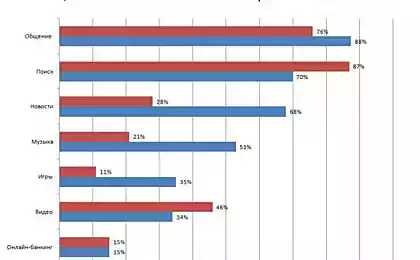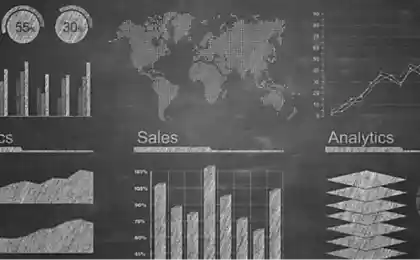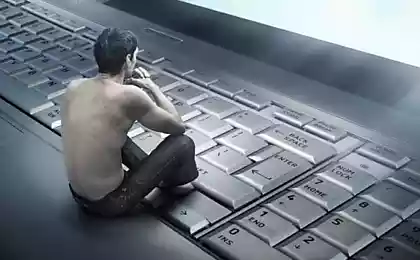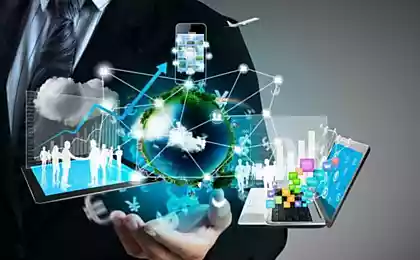547
That was before the Internet and how it changed us?
Fourteen million eight hundred two thousand nineteen
The dizzying speed with which digital technology is sweeping the world that causes surprise: over the past decade, the number of Internet users has increased by 566 percent. According to some estimates, the network is now up to 40 percent of the population of the globe. The Internet is not only enriched our experience of life, he is. Why publish an excerpt from the book of Michael Harris's "everyone and anyone": from the book about us — the last generation that remembers life before the Internet. "Everyone and anyone" is an important work, for it forces us to consider that being alone with yourself and your thoughts today — a large and almost inaccessible value.
A little time will pass and people will not be able to understand how they ever lived without the Internet. What does this unavoidable fact?
For billions of our descendants it will not mean anything special. Online technologies in General will become something of a founding myth — a phenomenon whose existence the people are barely aware. World network will become so ordinary and inconspicuous phenomenon. The previous generation was fascinated by the television, and it lasted as long as the TV has not appeared in every home and not have to create that nice soft background, which previously formed the radios. And future generations will be so immersed in the Internet, that the question of its purpose and meaning will disappear by itself. Of human life will disappear something very important — the type of thinking that we, their ancestors, take for granted. But perhaps the children will notice the loss. And we should not be blamed for it. However, we are fortunate to live in a unique time: we managed to catch the pre-Internet era, and now actively enjoy all the benefits of ubiquitous Internet.
Such is this extraordinary "moment between past and future". Awareness of its uniqueness and it appears in our lives. We notice that, standing at the bus stop, absent-mindedly reach for the phone. And our friend in the middle of a conversation begins to dig in his pocket to get the phone, look into Google and something to remember. We can still bethink. We say to ourselves: "Wait a minute…»
I think that in the confusion of the changes we are now experiencing, there is one major difference, and it will be difficult to attain for future generations.
But before I erased all memory of this loss will last a brief moment when we remember what it was. We still have something to do with those small, almost imperceptible moments when we remember our love for privacy. These memories suddenly pop up among the stream of daily chores and as if to signal, "Wait, isn't it?..»
Perhaps we will never be able to understand the true magnitude of the effect of the invention of Johann Gutenberg. Because the changes were so pervasive that almost became the glasses through which we all view the world. The advantages of printing is enormous, they had a huge impact on our lives. But we forget that every revolution in communication technology — from papyrus and the printing press to Twitter — is not only an opportunity to come to something, but a necessary loss of something.
Marshall McLuhan wrote in his book "Understanding Media" that "the new communication tool is never a simple addition to the old and never leaves them the same." Successful new means of communication actively subjugates before. It "never stops the suppression of the old ones until, until you find them new forms and niches". Thus, the destruction of the magazine and newspaper editors, a huge number of authors and publishers, leading blogs and now mourn for the fate in the coffee shops around the world, is non-random losses in the battle for the labour market. On the contrary, it is a symptom of a deeper distress.
For example, we do not notice that our working schedule disappeared free spaces, because we are too busy admiring to fill their entertainment. We forgot about the games, born thanks to the children's boredom, because boredom is outlawed. But why is it necessary to draw attention to the fact that the end of loneliness, ignorance, lack? Why we should be concerned the disappearance of privacy?
The more I thought about this seismic shift in our life — rush to the network experience, away from the more rare but specific things, the more I wanted to understand the nature of this phenomenon. As we experience life, experiencing their experiences on the situation of Gutenberg? As it is felt by people living in a unique historical moment, when there is experience of existence and without him?
If we try to understand the essence of this troublemaker, and then nasuverse fragments of new games (and those that want to leave, and those on which it would be nice to get rid of), will we be able to preserve important aspects of our past lives, which would otherwise disappear forever? Or we completely forget the value of this loss and will see only the aggregate of new acquisitions? We have to remember that was so pleasant in private, we don't even ask to return it.
To understand the uniqueness of our current difficulties and to understand how not to lose yourself in the modern life, we must look for answers in all the nooks and crannies of my own life experience. But the questions that you should answer, as simple as it is urgent: we want to take with you? What are the values we thoughtlessly leave in the past?
I got past the feeling of loneliness. When surface monitors were hit by a storm of digital communications, I desperately wanted to escape to some safe haven. I felt an almost physical aversion to the onslaught.
I wanted to sit at the empty wooden table and make something real. I wanted to take a walk in a deserted forest. I wanted to get rid of the painful as a migraine, continuous communication, from signals coming to the phone SMS, to get rid of any communication.
Many smart people were shocked by the new means of communication, and this, probably, will seem to future generations eccentricity. Jean Cocteau believed that radio is "a chimney that pours nonsense," corrupting the minds of his contemporaries. In the diary for 1951, he wrote: "Some wonder how the mind of the nation is resistance to the effects of radio. There is nothing surprising, he's not resisting". Groucho Marx said that television really contributes to the formation, "for as soon as in the house turn the TV on I go into another room to read".
Of course, these charges have long gone out of fashion and can be considered naive, but I wouldn't write them off. For those of us who are forced to deal with digital life, old-fashioned tonality of our discomfort is proof that we understand the difference, unavailable to future generations.
If you were born before 1985, then you know how people lived without the Internet and how to live with it. You make the pilgrimage from "before" to "after". (Younger not lucky enough in adulthood to live in the era of "before the Internet".) Those of us who belong to the transitional generation that has one foot in the digital pond and the other on the shore, experiencing strange pangs of acclimatization. We are digital immigrants, so don't always believe our new world quite friendly. The terms "digital immigrant" doesn't seem too good. It is expected that the immigrant, changing the country, improves the conditions of residence or escaping from persecution. As for me and my peers, we prefer to seek refuge in the country of our youth.
If you think about it, our situation is a unique gift. Times we are the last of the Mohicans, knowing what life was like before the Internet, we are the only one who can speak both languages.
Some innovations is more than just a specific fit, they change the very atmosphere of existence. But unless someone notices the air? published
P. S. And remember, only by changing their consumption — together we change the world! ©
Source: mtrpl.ru/
The dizzying speed with which digital technology is sweeping the world that causes surprise: over the past decade, the number of Internet users has increased by 566 percent. According to some estimates, the network is now up to 40 percent of the population of the globe. The Internet is not only enriched our experience of life, he is. Why publish an excerpt from the book of Michael Harris's "everyone and anyone": from the book about us — the last generation that remembers life before the Internet. "Everyone and anyone" is an important work, for it forces us to consider that being alone with yourself and your thoughts today — a large and almost inaccessible value.
A little time will pass and people will not be able to understand how they ever lived without the Internet. What does this unavoidable fact?
For billions of our descendants it will not mean anything special. Online technologies in General will become something of a founding myth — a phenomenon whose existence the people are barely aware. World network will become so ordinary and inconspicuous phenomenon. The previous generation was fascinated by the television, and it lasted as long as the TV has not appeared in every home and not have to create that nice soft background, which previously formed the radios. And future generations will be so immersed in the Internet, that the question of its purpose and meaning will disappear by itself. Of human life will disappear something very important — the type of thinking that we, their ancestors, take for granted. But perhaps the children will notice the loss. And we should not be blamed for it. However, we are fortunate to live in a unique time: we managed to catch the pre-Internet era, and now actively enjoy all the benefits of ubiquitous Internet.
Such is this extraordinary "moment between past and future". Awareness of its uniqueness and it appears in our lives. We notice that, standing at the bus stop, absent-mindedly reach for the phone. And our friend in the middle of a conversation begins to dig in his pocket to get the phone, look into Google and something to remember. We can still bethink. We say to ourselves: "Wait a minute…»
I think that in the confusion of the changes we are now experiencing, there is one major difference, and it will be difficult to attain for future generations.
But before I erased all memory of this loss will last a brief moment when we remember what it was. We still have something to do with those small, almost imperceptible moments when we remember our love for privacy. These memories suddenly pop up among the stream of daily chores and as if to signal, "Wait, isn't it?..»
Perhaps we will never be able to understand the true magnitude of the effect of the invention of Johann Gutenberg. Because the changes were so pervasive that almost became the glasses through which we all view the world. The advantages of printing is enormous, they had a huge impact on our lives. But we forget that every revolution in communication technology — from papyrus and the printing press to Twitter — is not only an opportunity to come to something, but a necessary loss of something.
Marshall McLuhan wrote in his book "Understanding Media" that "the new communication tool is never a simple addition to the old and never leaves them the same." Successful new means of communication actively subjugates before. It "never stops the suppression of the old ones until, until you find them new forms and niches". Thus, the destruction of the magazine and newspaper editors, a huge number of authors and publishers, leading blogs and now mourn for the fate in the coffee shops around the world, is non-random losses in the battle for the labour market. On the contrary, it is a symptom of a deeper distress.
For example, we do not notice that our working schedule disappeared free spaces, because we are too busy admiring to fill their entertainment. We forgot about the games, born thanks to the children's boredom, because boredom is outlawed. But why is it necessary to draw attention to the fact that the end of loneliness, ignorance, lack? Why we should be concerned the disappearance of privacy?
The more I thought about this seismic shift in our life — rush to the network experience, away from the more rare but specific things, the more I wanted to understand the nature of this phenomenon. As we experience life, experiencing their experiences on the situation of Gutenberg? As it is felt by people living in a unique historical moment, when there is experience of existence and without him?
If we try to understand the essence of this troublemaker, and then nasuverse fragments of new games (and those that want to leave, and those on which it would be nice to get rid of), will we be able to preserve important aspects of our past lives, which would otherwise disappear forever? Or we completely forget the value of this loss and will see only the aggregate of new acquisitions? We have to remember that was so pleasant in private, we don't even ask to return it.
To understand the uniqueness of our current difficulties and to understand how not to lose yourself in the modern life, we must look for answers in all the nooks and crannies of my own life experience. But the questions that you should answer, as simple as it is urgent: we want to take with you? What are the values we thoughtlessly leave in the past?
I got past the feeling of loneliness. When surface monitors were hit by a storm of digital communications, I desperately wanted to escape to some safe haven. I felt an almost physical aversion to the onslaught.
I wanted to sit at the empty wooden table and make something real. I wanted to take a walk in a deserted forest. I wanted to get rid of the painful as a migraine, continuous communication, from signals coming to the phone SMS, to get rid of any communication.
Many smart people were shocked by the new means of communication, and this, probably, will seem to future generations eccentricity. Jean Cocteau believed that radio is "a chimney that pours nonsense," corrupting the minds of his contemporaries. In the diary for 1951, he wrote: "Some wonder how the mind of the nation is resistance to the effects of radio. There is nothing surprising, he's not resisting". Groucho Marx said that television really contributes to the formation, "for as soon as in the house turn the TV on I go into another room to read".
Of course, these charges have long gone out of fashion and can be considered naive, but I wouldn't write them off. For those of us who are forced to deal with digital life, old-fashioned tonality of our discomfort is proof that we understand the difference, unavailable to future generations.
If you were born before 1985, then you know how people lived without the Internet and how to live with it. You make the pilgrimage from "before" to "after". (Younger not lucky enough in adulthood to live in the era of "before the Internet".) Those of us who belong to the transitional generation that has one foot in the digital pond and the other on the shore, experiencing strange pangs of acclimatization. We are digital immigrants, so don't always believe our new world quite friendly. The terms "digital immigrant" doesn't seem too good. It is expected that the immigrant, changing the country, improves the conditions of residence or escaping from persecution. As for me and my peers, we prefer to seek refuge in the country of our youth.
If you think about it, our situation is a unique gift. Times we are the last of the Mohicans, knowing what life was like before the Internet, we are the only one who can speak both languages.
Some innovations is more than just a specific fit, they change the very atmosphere of existence. But unless someone notices the air? published
P. S. And remember, only by changing their consumption — together we change the world! ©
Source: mtrpl.ru/


